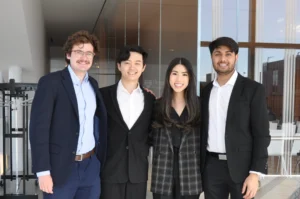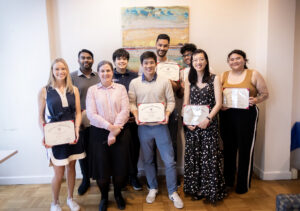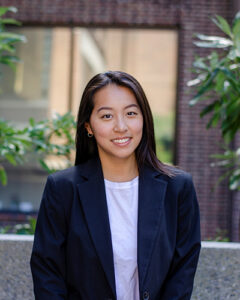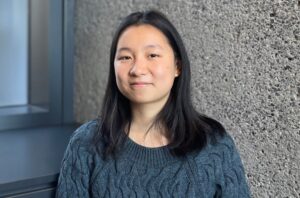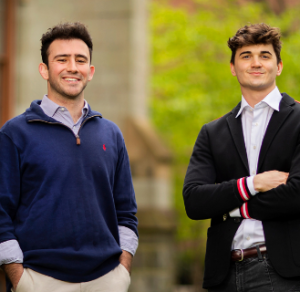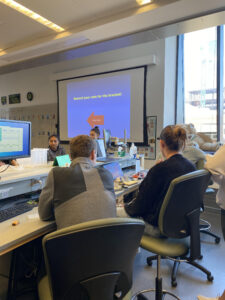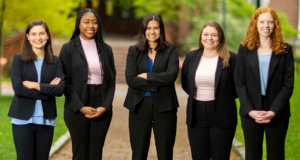
University of Pennsylvania President Liz Magill announced on April 21, the recipients of the 2023 President’s Engagement and Innovation Prizes.
Awarded annually, the Prizes empower Penn students to design and undertake post-graduation projects that make a positive, lasting difference in the world. Each Prize-winning project will receive $100,000, as well as a $50,000 living stipend per team member. The Prizes are the largest of their kind in higher education. All Prize recipients collaborate with a Penn faculty mentor.
A team of fourth-year Bioengineering majors, Gabriella Daltoso, Sophie Ishiwari, Gabriela Cano, Caroline Amanda Magro, and Tifara Eliana Boyce, have received the President’s Innovation Prize for their project, Sonura.
“This year’s President’s Engagement and Innovation Prize recipients are fueled by a desire to make a difference—in their community, across the country, and around the world,” Magill said. “Communities for Childbirth, Act First, and Sonura embody an inspiring blend of passion and purpose. They are addressing consequential challenges with compelling solutions, and their dedication and smarts are exemplary. I congratulate them and wish them success as they launch and grow their ventures.”
The 2023 Prize recipients—selected from an applicant pool of 76—will spend the next year implementing the projects:
Gabriella Daltoso, Sophie Ishiwari, Gabriela Cano, Caroline Amanda Magro, and Tifara Eliana Boyce for Sonura: Daltoso, from Boise, Idaho; Ishiwari, from Chicago; Cano, from Lawrenceville, New Jersey; Magro, from Alexandria, Virginia; and Boyce, from Jamaica, Queens, New York, are bioengineering majors in the School of Engineering and Applied Science. Their startup, Sonura, is developing a beanie that promotes the cognitive and socioemotional development of newborns in the NICU by protecting them from the auditory hazards of their environments while fostering parental connection. The Sonura Beanie is composed of a frequency-dependent filter and a mobile application. The Sonura team is mentored by Brian Halak, a lecturer in the Engineering Entrepreneurship program. Sonura was developed in Penn’s Stephenson Foundation Bio-MakerSpace and was part of their Bioengineering Senior Design class.
To learn more about the 2023 President’s Engagement and Innovation Prizes, visit Penn Today.

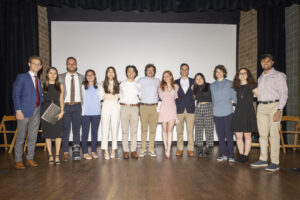 Congratulations to the Bioengineering student recipients of undergraduate awards from the
Congratulations to the Bioengineering student recipients of undergraduate awards from the 